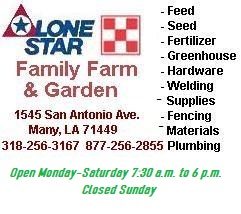Strong storms moving across East Texas have caused some power outages in communities Wednesday night.
SWEPCO
- Gregg County outages: 1,469
- Harrison County outages: 222
- Rusk County outages: 511
- Titus County outages: 193
- Upshur County outages: 79
- Smith County outages: 87
- Wood County: 23
Oncor:
- Angelina County outages: 2,482
- Anderson County outages: 113
- Cherokee County outages: 330
- Henderson County outages: 65
- Hopkins County outages: 211
- Houston County: 30
- Rusk County outages: 73
- Smith County outages: 2,499
Rusk County Electric Co-Op:
- Panola County outages: 487
- Rusk County outages: 496
Trinity Valley Electric:
- Anderson County outages: 5
- Henderson County outages: 3
- Kaufman County outages: 69
- Van Zandt County outages: 68
Houston County Electric Cooperative:
- Anderson County outages: 609
- Houston County outages: 860
- Cherokee County outages: 3
- Trinity County outages; 11
Sam Houston Electric Cooperative:
- Angelina County outages: 221
- Polk County outages: 552
- San Jacinto outages: 81
- Tyler County outages: 70
Upshur Rural Electric Cooperative:
- Thirty-six outages are reported.
Wood County Electric:
- Wood County Electric is reporting 259 outages.
KLTV and KTRE will continue to update these numbers.
Wondering when you can expect your power to be restored? Check the maps below.
- bottled water, canned and dried food, and emergency supplies consisting of flashlights, batteries, first-aid supplies, and a battery operated or crank radio. It is recommended that you use battery operated flashlights and lanterns, rather than candles, to minimize the risk of fire.
Food safety is most important; if power is out for less than two hours, food in the refrigerator and freezer should be safe. Keep doors closed on those, and after two hours, pack refrigerator items into ice packed coolers. If food reaches a temperature of more than 40 degrees, it should be thrown out.
Also, before an outage, consider placing containers of water in the empty spaces of the freezer. Once they turn to blocks of ice, they’ll lengthen the time items can be stored in the freezer without electricity and can also be used as drinking water.
Always use generators, camping stoves, and charcoal grills OUTDOORS to prevent carbon monoxide poisoning. For complete generator safety see our generator safety page.
In summer months, don’t get overheated. Stay in a building’s lower level where it should be coolest. Wear light-weight, light-colored clothing and drink lots of water. If home temperatures become unbearable, find a place to visit that is air-conditioned.
In winter months, it’s important to prevent hypothermia. During cold winter months, seal off unused rooms by stuffing towels under the doors. Wear layers of clothing and cover with extra blankets. Be sure to eat enough food to provide your body with enough energy to produce its own heat.
Most importantly, know if/when it’s time to go. No one wants to leave the comfort of their home, but sometimes it’s necessary to do just that. If the power is likely to remain out for an extended period, relocate to an alternate location that has power, such as the home of a relative, a hotel, or an emergency shelter.













